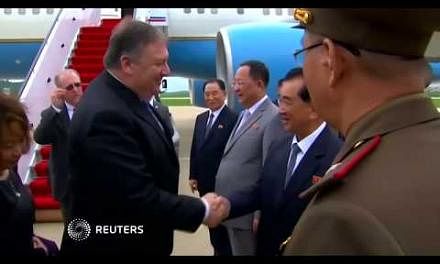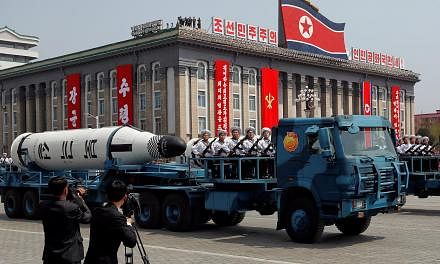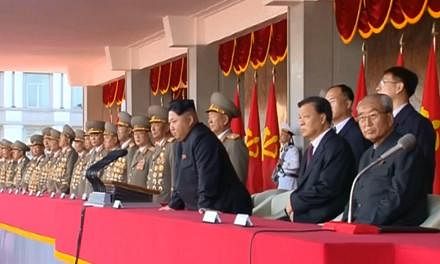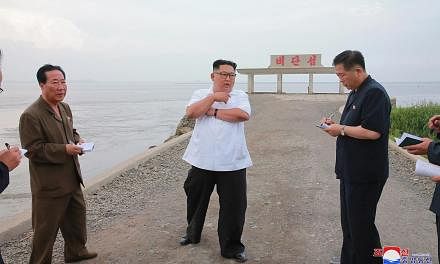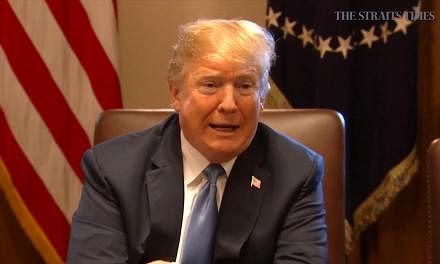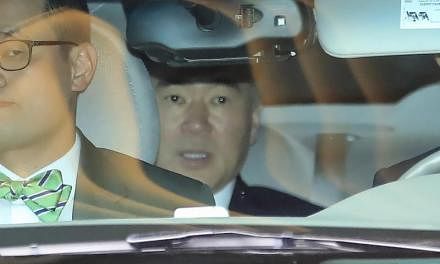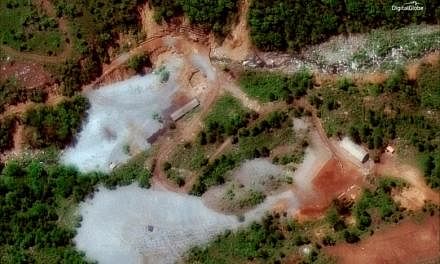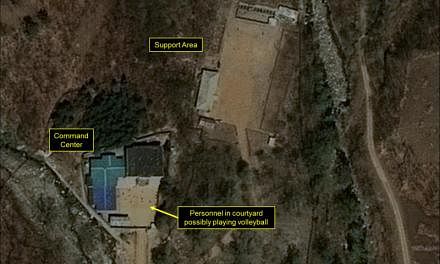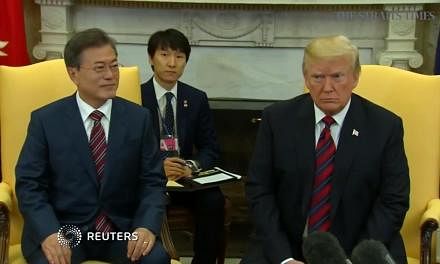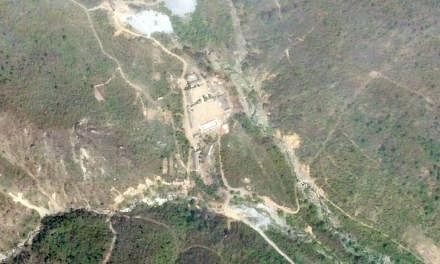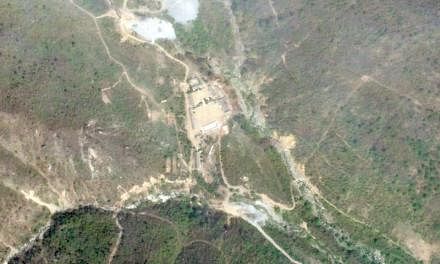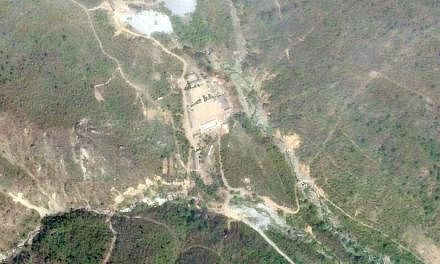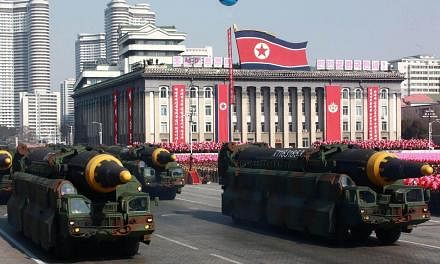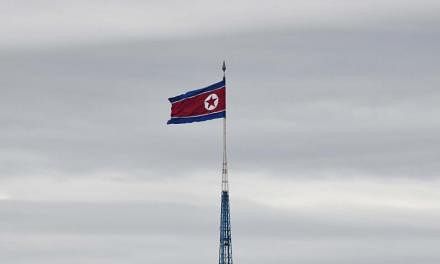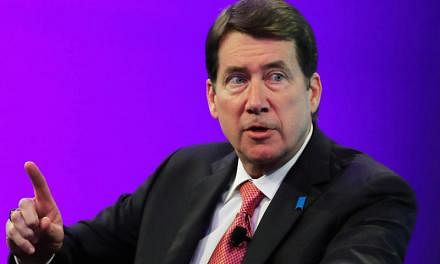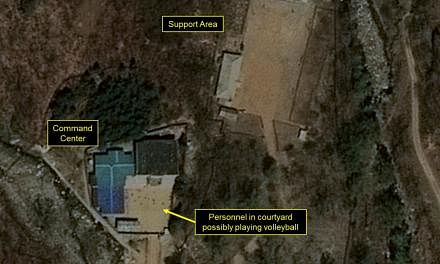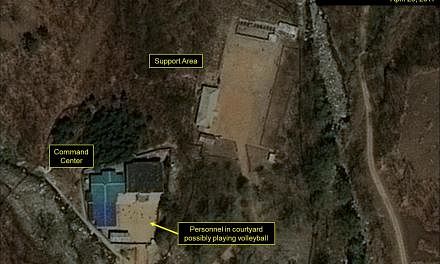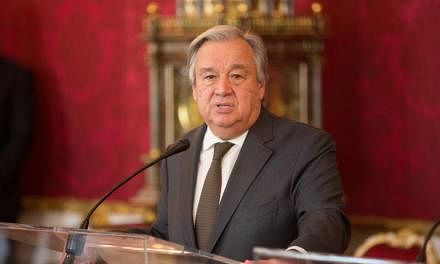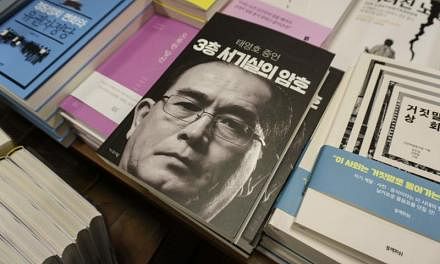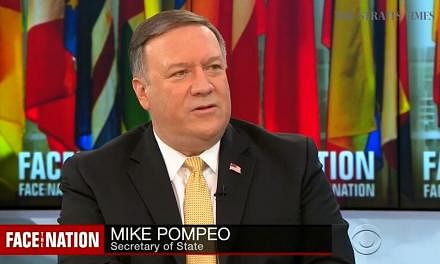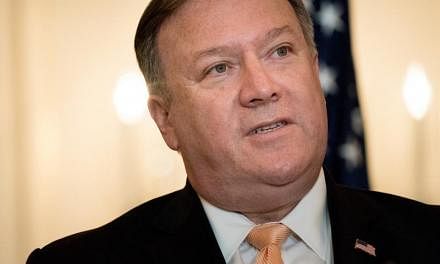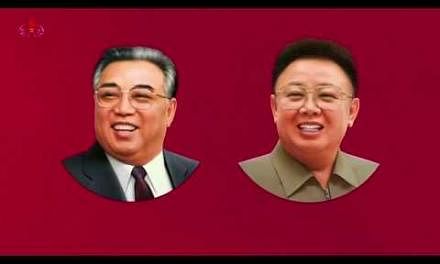Feuding tribal societies knew one way of brokering peace was to arrange an exchange of children in marriage or, if that were not possible, starting with a meaningful overture such as sending a strong representation to be present at a significant event on the other side.
In modern times, sport has often played that equivalent. When the US and China worked on their rapprochement, Beijing unexpectedly invited the US table tennis team, in Japan for the world championships, to make a visit. That visit, in April 1971, paved the way for then-US President Richard Nixon's breakthrough trip to China and "ping pong diplomacy" got etched in the annals of history thereafter.
As China's only formal ally, it is not surprising that the North Koreans would take a leaf out of the Beijing playbook when it suited its purpose. And thus it was that North Korean leader Kim Jong Un's New Year speech should have carried the surprise offer of sending a national representation to the Winter Olympics to be hosted by South Korea next month.
Its ready acceptance, the subsequent high-level talks, the reopening of a military hotline between the two and chances that the divided halves will march under a single flag at the Olympics have fired up imaginations on the Korean Peninsula. Before you get misty-eyed and reach for the tissue paper though, it is worth remembering a few things.
Mr Kim made his move after seeing through the essentials of a full-scale nuclear weapons programme calculated to build himself a fearsome deterrent. He has tested not only six bombs, two of them in the past year alone, but also delivery systems that could potentially hurl a nuclear tipped missile at any point in the United States, something he reminded US President Donald Trump in the recent speech.
It is hard to decide whether one should be indignant about Mr Kim's audacity or admire his tenacity. His peace overture came with his trademark bravado and he made it clear that it was targeted at Seoul while he still considered the US an enemy, thus drawing a subtle but important distinction for his South Korean brethren to mull over. And for good measure, he added that he had a nuclear button on his table, a taunt that Mr Trump found impossible to ignore, thus reducing himself to something of a playground rival of Mr Kim's.
True, there are a dozen questions about the effectiveness of his bombs, including whether his ICBMs can make re-entry into the earth's atmosphere with a nuclear cargo intact. But that is a matter of conjecture and it is a sure bet Pyongyang's scientists are working on perfecting it, if they do not have the technology already. Like it or not, Mr Kim is the boy with the nuclear toys.
It is time we acknowledged that far from being a reckless madman, Mr Kim is a shrewd operator with a keen sense of timing, and a rational mind that sizes up situations expertly. This places him in a different league from his opponent with the "larger nuclear button" whose shifting moods, possibly influenced by what he watches on television rather than his briefing papers, are conveyed to the world in an instant through his Twitter handle.
Little wonder that Russian President Vladimir Putin seems to have a grudging respect for the 34-year-old North Korean strongman, and possibly helps him too, if nothing else but to cock a snook at the US. In an interview with Reuters on Wednesday, Mr Trump suggested that Russia is covertly stepping in for China to help Pyongyang mitigate the worst effects of the UN-imposed sanctions.
Second, it needs to be recognised that the Kims are generally a durable lot and if the outside world thinks that things in the isolated nation would reach a stage where a regime change could be engineered from the inside, that is perhaps unlikely. Such talk has gone on for 50 years. Mr Kim's father and grand-father died in their beds.
Third, Mr Trump's instincts to tear up the nuclear agreement reached with Iran would have given pause to any other nation planning to hold similar denuclearisation talks with the US. Mr Kim probably reads his briefing papers carefully. And he may have reason to wonder what's the point if the most solemn assurances are not to be respected.
It would be foolish, therefore, to believe that North Korea would easily give up its hard-won nuclear capability or that the world could expect new thinking to emerge from Pyongyang on the subject. How much it prizes that deterrent was on show at a conference on non-proliferation held in Moscow last October. There, Mr Choe Son Hui, the top North Korean foreign ministry official responsible for handling ties with the US, was quoted as saying that the nuclear deterrent is "a matter of life and death for us".
Indeed, the website 38North, which tracks North Korea closely, reported a few days ago that while recent satellite imagery of the Punggye-ri nuclear test site shows that the North Portal, where the last five tests were conducted, remains dormant, tunnel excavation has been stepped up in the West Portal.
Throughout December, it said, mining carts and personnel were consistently present around the West Portal and there was significant expansion of the spoil pile. In other words, the place is being kept ready for another atomic test.
Under the current circumstances, getting the North to cease testing is perhaps the most you could realistically get it to concede and the US State Department seems to recognise that, even if Mr Trump does not. "If we're going to talk, we need to have a period of quiet," said Secretary of State Rex Tillerson at a recent conference on North Korea held in Washington.
For now, all that has been conceded to Mr Kim is that South Korea and the US will not conduct war games while the Winter Games and the Paralympics are on. They do not add up to a solution. As the US and Japan press for tighter implementation of sanctions - in the clear belief that they are showing results - these may not be enough to get Mr Kim to hold off further testing.
The North Korean power elite is usually the last to feel pain. By some estimates, the North spends a third of its estimated US$300 billion (S$397 billion) gross domestic product on the military and the allied nuclear programme, and roughly the same proportion of available fuel oil is consumed by the elite.
But even the military may be feeling the crunch this time. In November, when South Korean doctors treated a wounded North soldier who had escaped to the South in a hail of bullets, they removed foot-long worms from his intestines. This suggests that even soldiers may be suffering poor nutrition in the North, aside from adding to evidence that farmers there are forced to use human faeces as fertiliser.
As for ordinary people, Mr Trump may not be off the mark in labelling the country "food-starved". Visit the verdant South Korean town of Paju and 10km away, across the Imjin River, the bleak mountain tops of North Korea, denuded long ago by people scrounging for fuel wood and timber, stand desolate testimony to the hardship and isolation of the North. Seventy years after the Korean Peninsula was divided, the Southerners have left their Northern kin behind in every aspect of human development, including median heights of people.
A lasting peace on the Korean peninsula cannot come without a concord between the US and China, and perhaps Russia as well. But neither Beijing nor Moscow were invited to this week's talks hosted by Canada, leading the Chinese to complain of a "Cold War mentality".
Indeed, some believe it is the hangover from the Cold War that really stands in the way of a solution. While the US insists it has withdrawn nuclear weapons from the peninsula, Beijing seems to believe that Washington is not sincere about finding a solution to the issue through talks because that would deprive it of an excuse to park powerful and potent weapons in China's periphery.
In his New Year address, Mr Kim heaped fulsome praise on the Pyeongchang Games, hailing it as a major event for all Koreans. "Since we are compatriots of the same blood as South Koreans, it is natural for us to share their pleasure over the auspicious event and help them," he said.
It will be a while before the North thinks of carving on trees the names of their southern brethren. But it does appear as though the sabres will be lowered, at least until the end of the sporting festivities. Whether it heralds a new spring and a real conversation on denuclearisation is a little too soon to tell.



